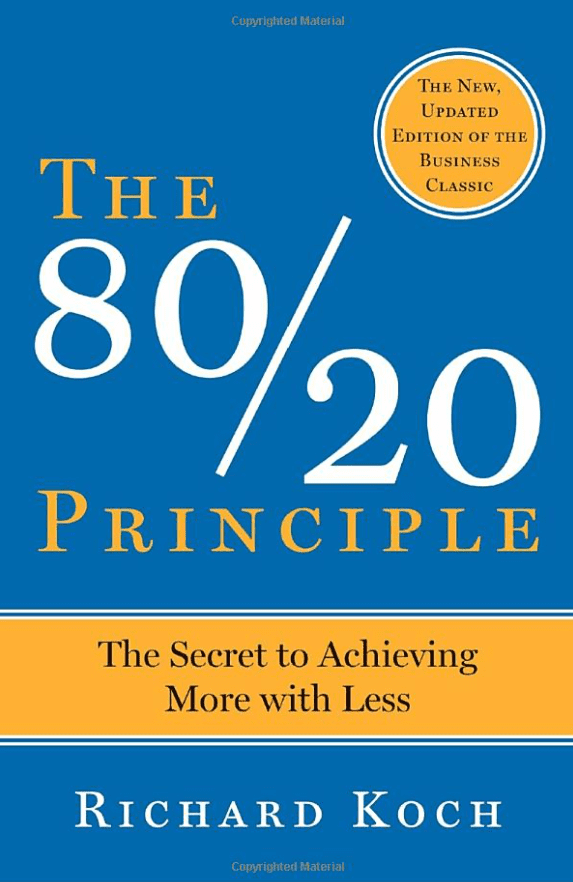The 80/20 Principle: The Secret to Achieving More with Less
Richard Koch

How anyone can be more effective with less effort by learning how to identify and leverage the 80/20 principle–the well-known, unpublicized secret that 80 percent of all our results in business and in life stem from a mere 20 percent of our efforts.
The 80/20 principle is one of the great secrets of highly effective people and organizations.
Did you know, for example, that 20 percent of customers account for 80 percent of revenues? That 20 percent of our time accounts for 80 percent of the work we accomplish? The 80/20 Principle shows how we can achieve much more with much less effort, time, and resources, simply by identifying and focusing our efforts on the 20 percent that really counts. Although the 80/20 principle has long influenced today’s business world, author Richard Koch reveals how the principle works and shows how we can use it in a systematic and practical way to vastly increase our effectiveness, and improve our careers and our companies.
The unspoken corollary to the 80/20 principle is that little of what we spend our time on actually counts. But by concentrating on those things that do, we can unlock the enormous potential of the magic 20 percent, and transform our effectiveness in our jobs, our careers, our businesses, and our lives.
Key Summary
The 80/20 Principle, also known as the Pareto Principle, is a concept that states that 80% of outcomes are derived from 20% of causes. The book explores this principle and how it can be applied to various areas of life, including work, time management, and personal development, to achieve more with less effort.
Takeaways
1. Focus on the 20% of activities that generate 80% of results.
2. Prioritize high-impact tasks over low-impact tasks.
3. Identify the 20% of customers that generate 80% of revenue and focus your efforts on them.
4. Look for ways to leverage the 80/20 principle to automate low-impact tasks.
5. Minimize or eliminate activities that generate low results.
6. Be mindful of how you spend your time and energy.
7. Look for ways to delegate low-impact tasks to others.
8. Look for ways to eliminate obstacles and simplify processes.
9. Use the 80/20 principle as a guide for making strategic decisions.
10. Continuously evaluate and optimize your activities to maximize results.